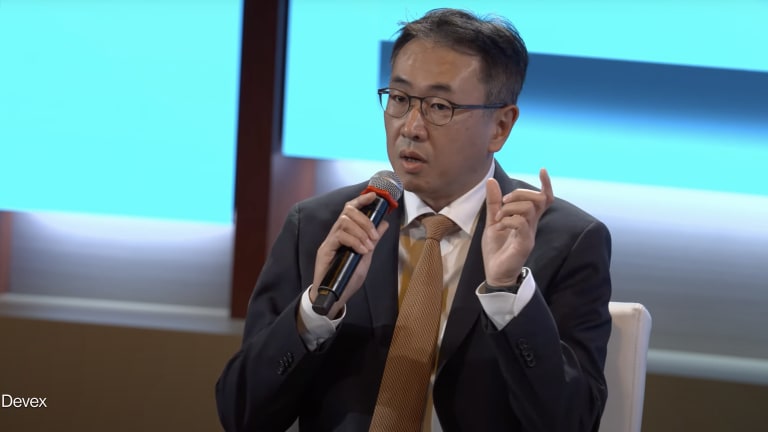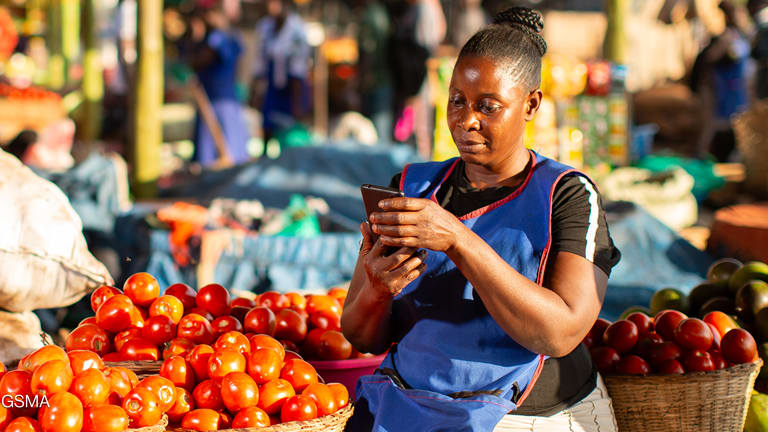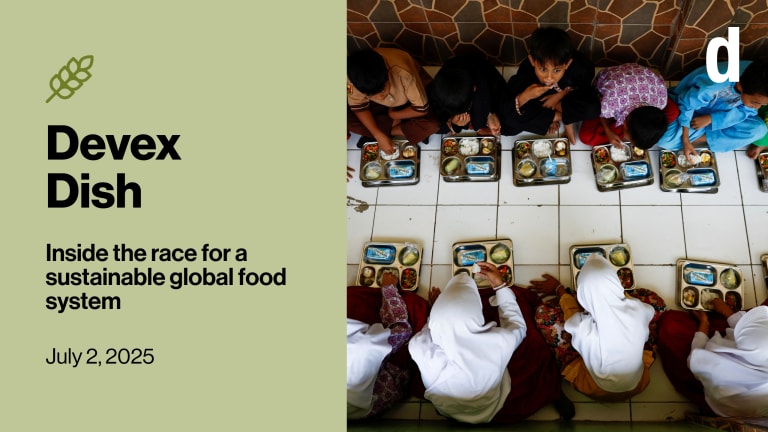
Jimmy Wales, founder of Wikipedia, the online encyclopedia that anyone can edit, envisions a world where “every single person on the planet has free access to the sum of all human knowledge.”
In charge of meeting that ambitious goal is the Wikimedia Foundation. For now, the foundation first seeks to reach one billion Wikipedia users and expand the website into the Global South.
A critical part of that effort is Wikipedia Zero, a program by which mobile service providers around the world are encouraged to allow free access to Wikipedia on mobile phones. In just one year, Wikipedia Zero has already entered into partnerships in over a dozen countries, one of them South Africa, where students at a local school asked mobile services providers to join the initiative so they could use Wikipedia to study.
We caught up with Carolynne Schloeder, Wikipedia Zero’s director of mobile programs, to ask her about what partnerships they are pursuing, and how the organization plans to change the world through its army of volunteer contributors and editors.
Here are a few highlights from our conversation:
Wikipedia Zero expands access to people who wouldn’t be able to use Wikipedia otherwise. How does that work exactly?
The Wikipedia Zero program is part of the Wikimedia Foundation’s mobile strategy, which focuses on reaching the billions of people around the world whose primary Internet access is via mobile devices. For many people, mobile data charges are a big obstacle to using Wikipedia. We partner with mobile carriers to make Wikipedia access free of data charges for their subscribers.
Implementation is easy: The carrier sets their billing system to not charge for airtime when connecting to Wikimedia URLs and IP addresses. The foundation identifies the carrier IP addresses and serves up a message telling the user they are viewing the pages without being charged for data, courtesy of their mobile carrier. Users can freely browse Wikipedia without worrying about the cost.
How does giving someone free access to Wikipedia make them better off?
Wikipedia can help reduce the digital divide between developed and developing countries. We believe in the value of free knowledge to help people improve their lives. The knowledge base in Wikipedia supplements educational curricula and offers a window to the world. And users can contribute to the knowledge base, ensuring an open multilateral exchange of information.
How does Wikipedia Zero build the partnerships that make this access possible? Is there something in it for the mobile phone companies?
The mobile ecosystem is a powerful platform for societal development and our mobile operator partners share a strong commitment to corporate social responsibility. Wikipedia Zero is a great way to give to their community, to support education and to reduce the digital divide. It also enhances the operator’s brand and customer relations. Many subscribers are using the mobile Internet for the first time, so free access to Wikipedia gets them over the initial trial hurdle and shows them the power of their mobile device.
How does Wikipedia Zero complement other efforts to bridge the digital divide in the developing world?
In most countries where we operate, there are education programs sponsored by NGOs, the ministry of education or our operator partners, which are an excellent fit with Wikipedia Zero and the Wikimedia Foundation’s own education program. Wikipedia is also complementary with ICT programs to teach people about the Internet.
We’re exploring a variety of ways we can collaborate with other related movements, which will become part of our mobile strategy. We’re trying to reach a billion people, so we want to build partnerships with like-minded organizations to really leverage this initiative.
Do you have a list of priority countries where you want to expand?
We actually want to bring the sum of all human knowledge to everyone on the planet. Wikipedia Zero targets people throughout the Global South whose primary Internet access is through mobile, yet who cannot afford mobile data charges. We’ve got good momentum in Africa and we’re growing in Asia and the Middle East. We have yet to tap Latin America, so that will be a push in 2014.
Have you been able to measure the number of people who access Wikipedia through the arrangement?
As part of our commitment to privacy, the Wikimedia Foundation stores only the minimum user data (such as IP addresses), so we don’t have exact number on our unique users. We do monitor page requests by country, and we’re seeing growth in free page views as we add operators and countries. We are tracking our reach of mobile subscribers under our operator agreements, currently at 680 million.
What future initiatives are you particularly excited about?
We are currently piloting an innovative “Wikipedia via text” service to reach people who do not use mobile Internet on their phones. The user dials a USSD code, enters the search term, and selects which article and then the section they want. The content is delivered via an SMS and the user can reply to get more information on the article or to select another. We’re in the testing and development stage, and we have to see what the user interface is like, and how people use it, so we don’t have any commitments for a global roll-out at this point.
Last week, you announced a partnership with Norwegian mobile service provider Telenor to give people in Myanmar free access to Wikipedia. What kind of impact do you think this will have in Myanmar?
The 60 million people in Myanmar have had little or no Internet access. Imagine how it can change people’s lives when they can find any information, answer any question, learn about the world outside, all right at their fingertips […] It’s also an incentive for users in Myanmar to contribute to Wikipedia and add to our global knowledge base. The Burmese people will have the opportunity to share their knowledge by contributing to Wikipedia and improving the resource in their language.
Read more development aid news online, and subscribe to The Development Newswire to receive top international development headlines from the world’s leading donors, news sources and opinion leaders — emailed to you FREE every business day.








